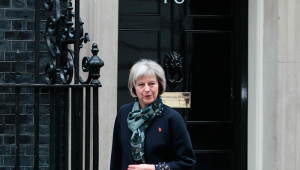Across the political spectrum, the diversity that really started in the late 90s has now become embedded in both main parties, and not just in an improved gender and ethnic balance, but also in a more socially representative group of MPs.
Over several elections, the Sutton Trust has been tracking the educational backgrounds of MPs and cabinet ministers, and there are some interesting trends visible in our Parliamentary Privilege research brief this week. For a start, newly-elected MPs are much more likely to have been to comprehensive schools in 2015 than those who were re-elected from the 2010 intake. And our analysis of the new Cabinet – widely quoted in the press this week – showed a doubling in the proportion of ministers attending Cabinet who had been to non-selective state schools.
Of course, this doesn’t mean that a private education is not still an advantage for Parliament or the Cabinet, just as it is at the top of professions from the law to the City. Half of David Cameron’s Cabinet was privately educated, seven times the proportion of the population who attend independent schools, and 32% of MPs were too, over four times the national average.
Moreover, while Conservative MPs are a bit less likely to have been privately educated – at 48% probably the first time their proportion has dipped below half – a number of Labour’s new intake had an independent education, pushing their proportion up slightly to 17%.
When people talk about parliamentary privilege in education, they often couple an Oxbridge education with having been to public school. However, the two groups are not synonymous and we would expect MPs to be better educated than the population at large. Still, it is still interesting that more than a quarter of MPs went to Oxford or Cambridge and a further 28% attended another Russell Group university. Half the Cabinet also has an Oxbridge education. Interestingly, among the new SNP group of 56 MPs – at least the 40 whose educational backgrounds were publicly available – few had a private education and Glasgow was perhaps unsurprisingly their main political training ground.
So what are we to make of all this? Of course, we should welcome evidence of improved mobility for state educated parliamentarians, and the Cabinet and Commons should be the richer for this wider experience, just as it has been improved by having a growing number of women MPs and those from BME communities. But just as the 29% of female MPs and 6% of BME MPs in the new Commons are not yet representative of the community as a whole, neither should we rest on our laurels when even in this new intake the newly elected MPs are four times more likely to be privately educated than average.
Some will say that this is all about class envy publicising this information, and some candidates refuse to make public their educational backgrounds perhaps for that reason. That isn’t what it is about at all. Rather it is to recognise that access to our best schools – and that includes our best comprehensives and grammar schools – is too often related to ability to pay, including the means to buy a house in a popular catchment area. So we need this more representative group of MPs to address these issues, supporting fairer admissions to comprehensives and needs blind access to independent day schools. The issue is one of fair access.
Equally, we should be less concerned that Oxbridge and the Russell Group has such a grip on political life than we should be that access to those leading universities is still so heavily skewed towards the richest communities. A child from the top fifth of neighbourhoods is still more than six times more likely to go to a leading university than one from the bottom fifth, and when it comes to the top 13 (including Oxbridge) that gap widens to nine-fold. There are too many bright youngsters from less advantaged areas who are not getting as far as applying to these universities, let alone being admitted to them.
So that’s the challenge for our ‘comprehensive’ Commons and Cabinet – will they do more to promote fair access to our best schools and universities, so they can be trailblazers for many more young people from modest backgrounds to reach the centres of political power in Britain today?
With the right policies, they can open doors for others to follow.
This opinion piece also appears in the Sutton Trust blog





















